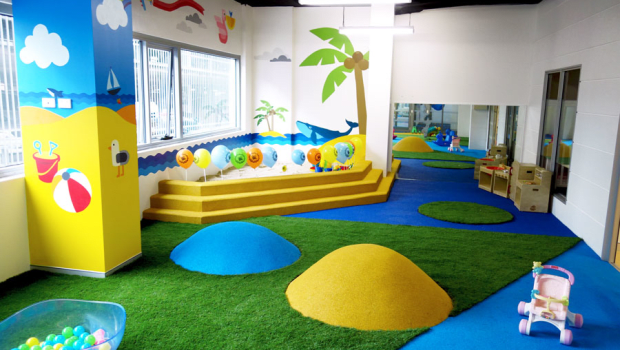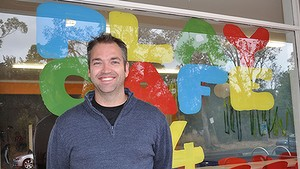New childcare centres are set to be opened at two premium office towers in Sydney and Melbourne.
Arguably Melbourne's most prestigious business address, 101 Collins Street, Guardian Early Learning has taken out 2168 square metres with a view to opening a childcare centre in the third quarter of this year.
Meanwhile at one of Sydney's top buildings, Chifley Tower, operator Green Leaves will open a boutique childcare centre within weeks - offering just 66 places to those lucky enough to be accepted.
While its pre-school clients won't be able to dig dirt under the blue sky, there will be a full-time chef on board to ensure nourishment of the highest order.
Dance, yoga and language classes will also be available at 2 Chifley Square while parents in need of an early morning caffeine hit will have access to a barista.
The new centres come as
childcare industry revenue is expected to grow at an annualised 11.7%, to $10.6 billion through 2015/16. Higher government expenditure in the childcare sector is the main driver of this growth, while increases in fees and enrolment numbers (in line with a sustained rise in maternal workforce participation rates and higher household disposable income) have also contributed.
In line with this strong revenue growth, establishment numbers have trended upwards, growing by an estimated 7.5% annualised over the five years through 2015-16. Growing enrolment numbers and the entry of new players, both private and community-based, have assisted this trend.
Industry Changes
Following the much-publicised demise of ABC Learning Centres, the Australian Child Care Services industry has undergone dramatic changes. This can be partly attributed to the entry of new players, including not-for-profit centres, which are estimated to account for 40% of industry numbers. In addition, new corporate entries have again stimulated investor interest. In October 2014, Think Childcare and Education Ltd became Australia's third ASX-listed childcare player, following in the footsteps of Affinity Education Group Limited, which listed on the ASX in late 2013.
The changing needs of working parents have also caused industry changes.
One of the fastest growing sectors has been outside school-hours care, with both after-school and vacation-care segments recording strong growth in the number of children over the past five years. This growth has reflected changing labour participation rates and associated work patterns as an increasing number of families working on a part-time or shiftwork basis rely on childcare services.
The industry faced growing calls for more flexible operational hours to assist working families and parents who need to work at short notice, or travel as part of their job. Over 2013-14, the Federal Government ran childcare flexibility trials to better meet these changing needs. Several of the larger industry players participated in the scheme, although take-up among families was less than initially anticipated.
National Quality Framework
One of the most significant forces currently shaping the Child Care Services industry has been the graduated implementation of the National Quality Framework (NQF). The NQF has been designed to raise quality and drive ongoing improvements in Australia's education and childcare sectors.
It applies to most long day care, family day care, outside school-hours care and preschools or kindergartens.
In addition, childcare staff have faced increased qualification requirements. As of 1 January 2014, at least half of all long day care centre staff have had to start working towards a Certificate III in early childhood education and care. As staff have been pursuing higher qualifications, the pressure on employers to offer commensurate pay has been rising. These developments are behind the increase in employment numbers and associated wage costs for the industry.
Over the five years through 2015-16, industry wages are expected to rise by an annualised 11.2% to represent 63.8% of industry revenue. Employment numbers are expected to increase by an annualised 10.0% over the same period. An expected increase in the number of operational childcare centres, particularly family day care centres, is also driving this growth.
Profitability
The rapid rise of G8 Education has been indicative of the industry's potential for higher profitability. During the second half of 2014, G8 Education had an underlying EBIT margin of 24.0%, up from 15.0% for the second half of 2010. Overall industry profit margins are expected to account for 7.7% of industry revenue for 2015-16.




